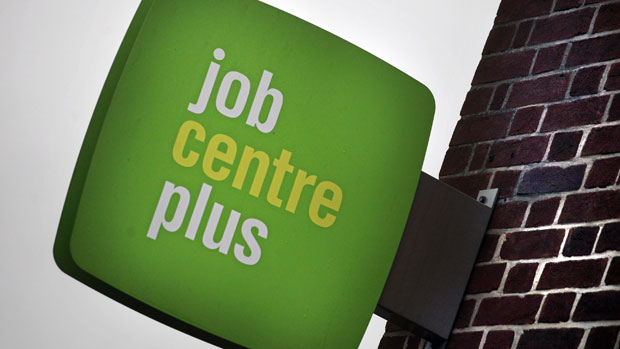UK unemployment down – but so is the average wage
Economists warn of 'paymageddon' as average wages see 'shock' fall for the first time in five years

A free daily email with the biggest news stories of the day – and the best features from TheWeek.com
You are now subscribed
Your newsletter sign-up was successful
Unemployment figures are nearing a six-year low, but average wages have also fallen for first time since 2009, according to the Office for National Statistics.
The unemployment rate fell to 6.4 per cent by the end of June, the lowest since late 2008, with the number of people unemployed dropping to 2.08 million.
However, average weekly earnings dropped 0.2 per cent in the three months to June, compared with a year earlier, marking the first fall since 2009.
The Week
Escape your echo chamber. Get the facts behind the news, plus analysis from multiple perspectives.

Sign up for The Week's Free Newsletters
From our morning news briefing to a weekly Good News Newsletter, get the best of The Week delivered directly to your inbox.
From our morning news briefing to a weekly Good News Newsletter, get the best of The Week delivered directly to your inbox.
Anthony Reuben, the BBC's head of statistics, notes that this is an average of what everybody is earning across the country. "Falling average earnings does not necessarily mean individuals are having their pay cut – it might fall if lots of people got part-time jobs, or if many new low-paying jobs were created, for example," he says.
The Office for National Statistics said the fall was mainly due to an unusually high growth rate for April last year, when many businesses waited until April to pay bonuses to take advantage of the government's tax cut from 50 per cent to 45 per cent.
Nevertheless, the Bank of England today slashed its forecast for wage growth, saying it now expected average salaries to rise by just 1.25 per cent this year.
Alan Tovery, jobs editor at the Daily Telegraph, describes the drop in wages as a "shock collapse" and says it makes "grim reading" for the Chancellor and the Bank of England when compared with 1.9 per cent inflation. Consumers find their incomes even more stretched as prices outstrip wage growth, he says.
A free daily email with the biggest news stories of the day – and the best features from TheWeek.com
Economist John Philpott labels it "paymageddon", warning that until the slack in the labour market is absorbed the "abundance of relatively cheap labour has caused the UK to become a more labour intensive, low productivity economy".
The Bank of England says that the timing and pace of interest rate rises will depend on the speed at which wages rise. Jeremy Cook, chief economist at currency company World First, says today's wage figures will therefore come as a "real gut punch" for investors hoping for an interest rate increase in the UK.
-
 The ‘ravenous’ demand for Cornish minerals
The ‘ravenous’ demand for Cornish mineralsUnder the Radar Growing need for critical minerals to power tech has intensified ‘appetite’ for lithium, which could be a ‘huge boon’ for local economy
-
 Why are election experts taking Trump’s midterm threats seriously?
Why are election experts taking Trump’s midterm threats seriously?IN THE SPOTLIGHT As the president muses about polling place deployments and a centralized electoral system aimed at one-party control, lawmakers are taking this administration at its word
-
 ‘Restaurateurs have become millionaires’
‘Restaurateurs have become millionaires’Instant Opinion Opinion, comment and editorials of the day
-
 The end for central bank independence?
The end for central bank independence?The Explainer Trump’s war on the US Federal Reserve comes at a moment of global weakening in central bank authority
-
 Will Trump’s 10% credit card rate limit actually help consumers?
Will Trump’s 10% credit card rate limit actually help consumers?Today's Big Question Banks say they would pull back on credit
-
 What will the US economy look like in 2026?
What will the US economy look like in 2026?Today’s Big Question Wall Street is bullish, but uncertain
-
 Is $140,000 the real poverty line?
Is $140,000 the real poverty line?Feature Financial hardship is wearing Americans down, and the break-even point for many families keeps rising
-
 Fast food is no longer affordable for low-income Americans
Fast food is no longer affordable for low-income AmericansThe explainer Cheap meals are getting farther out of reach
-
 Why has America’s economy gone K-shaped?
Why has America’s economy gone K-shaped?Today's Big Question The rich are doing well. Everybody else is scrimping.
-
 Should Labour break manifesto pledge and raise taxes?
Should Labour break manifesto pledge and raise taxes?Today's Big Question There are ‘powerful’ fiscal arguments for an income tax rise but it could mean ‘game over’ for the government
-
 From candy to costumes, inflation is spooking consumers on Halloween this year
From candy to costumes, inflation is spooking consumers on Halloween this yearIn the Spotlight Both candy and costumes have jumped significantly in price